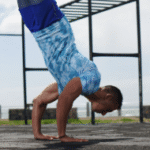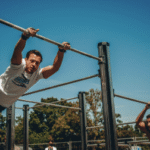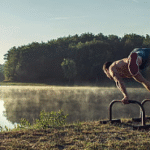Embrace the Cold, You Won’t Regret It!
Okay, let’s dive into **”Embrace the Cold, You Won’t Regret It!”** with a detailed guide tailored for the **USA** as of April 15, 2025.
**Introduction: Stepping Out of Your Comfort Zone**
The idea of deliberately seeking out cold temperatures might seem counterintuitive in our modern world geared towards comfort. Yet, across the USA, a rapidly growing number of people are intentionally “embracing the cold” through practices like cold showers, ice baths, and cryotherapy. Why? Because while initially challenging, the potential benefits for both body and mind are compelling, leading many proponents to declare, “You won’t regret it!” This guide explores why you might want to embrace the cold, how to do it safely, and the potential rewards.
**Why Embrace Something Uncomfortable? The Potential Rewards**
The core idea behind embracing the cold lies partly in the concept of **hormesis** – exposing your body to brief, manageable stress can trigger adaptive responses that make you stronger and more resilient. Here’s why many find the experience rewarding:
- **Invigorated Mind & Mood Boost:** The initial shock of cold triggers a significant release of **norepinephrine** (enhancing alertness, focus, and attention) and **endorphins** (natural mood elevators and pain relievers). Many users report feeling exceptionally clear-headed, energized, and in a positive mood immediately following cold exposure. Some studies suggest links to reduced symptoms of depression and anxiety with regular practice.
- **Building Mental Resilience & Fortitude:** Regularly facing and calmly managing the intense physical discomfort of cold exposure is powerful mental training. It teaches discipline, breath control under stress, and demonstrates your capacity to endure difficult situations, potentially increasing your overall resilience to life’s stressors.
- **Reduced Inflammation & Muscle Soreness:** Especially popular among athletes and fitness enthusiasts in the USA, cold exposure causes **vasoconstriction** (narrowing of blood vessels). This helps reduce blood flow to muscles immediately after intense exercise, potentially lessening inflammation, swelling, and Delayed Onset Muscle Soreness (DOMS).
- **Enhanced Circulation:** While cold initially constricts vessels, the body’s response upon rewarming involves vasodilation. Regular hot/cold exposure (contrast therapy) is thought to act like exercise for your blood vessels, potentially improving circulation over time.
- **Potential Metabolic & Immune Support:** Cold exposure forces your body to work harder to generate heat (thermogenesis), burning calories. It may also activate **Brown Adipose Tissue (BAT)**, a type of fat specialized in heat production. Some research also hints at potential positive effects on immune cell activity, although more studies are needed.
**Ways to Embrace the Cold in the USA:**
You don’t need to move to Alaska! There are accessible ways to incorporate cold exposure:
- **Cold Showers:** The easiest entry point.
* **How:** Finish your regular warm shower with cold water. Start with just 15-30 seconds, focusing on controlled breathing (slow exhales). Gradually increase the duration (aiming for 1-3 minutes) and decrease the water temperature over days or weeks as you adapt.
- **Cold Plunges / Ice Baths (Cold Water Immersion – CWI):** The popular deep dive.
* **How:** Immerse your body (up to the neck) in water typically **below 60°F (15°C)**, often targeting **40-55°F (4-12°C)**.
* **Where (USA):** Increasingly available at gyms, dedicated sports recovery centers, wellness studios, and spas. The market for **home cold plunge tubs** (from basic barrels needing ice to sophisticated units with chillers and filtration) has exploded in the US.
* **Duration:** Start very short (30-60 seconds) and gradually increase to **2-5 minutes** as tolerated. Longer durations significantly increase risks.
- **Whole Body Cryotherapy (WBC):**
* **How:** Brief exposure (usually 2-3 minutes) to extremely cold, dry air (typically -150°F / -100°C or lower) in a specialized chamber.
* **Where (USA):** Found at dedicated cryotherapy centers. Offers a different sensation (less intense initial shock than water) but potential systemic benefits.
- **Winter Outdoor Activities:**
* **How:** Embrace cold-weather hiking, running, skiing, or snowshoeing (with appropriate gear!). For the very adventurous (and cautious), supervised “polar bear plunges” into natural cold water bodies exist in many parts of the US during winter.
**Embracing it SAFELY (So You Truly Won’t Regret It!)**
Regret often comes from improper or unsafe practice. Prioritizing safety is non-negotiable:
* **Medical Consultation FIRST:** **Absolutely essential** if you have **any cardiovascular conditions** (heart disease, arrhythmias, high/low blood pressure), **circulatory problems** (like Raynaud’s disease), **diabetes** (especially with nerve damage/neuropathy), are **pregnant**, or have other significant health concerns. The cold shock places stress on the heart and circulatory system.
* **Start SLOW and Gradual:** Do not jump into freezing water for long durations on day one. Acclimatize your body over time. Begin with cold showers, then progress to warmer cold plunges (55-60°F) for very short periods (30-60 seconds).
* **Master Your Breath:** The initial 30-60 seconds trigger a **cold shock response** (gasping, hyperventilation). You MUST consciously control your breathing – focus on slow, steady exhales to calm your nervous system and prevent panic. Never hyperventilate before or during immersion.
* **Listen Intently to Your Body:** Pay attention to signals. Exit **before** you experience uncontrollable, violent shivering, significant numbness (especially in extremities), dizziness, confusion, or intense pain. It’s about hormetic stress, not injury. Don’t compete or push past sensible limits.
* **Duration Matters:** Keep immersions relatively short (especially for colder temps). Aim for consistency over extreme duration. A few minutes is often sufficient for benefits.
* **Never Plunge Alone:** Especially when starting, using very cold water, or plunging in open water. Have someone nearby who understands the risks and knows what to do in an emergency.
* **Warm Up Gradually:** After exiting, dry off quickly and put on warm, dry layers. Gentle movement can help restore circulation. Avoid immediate exposure to extreme heat (like a scalding shower or very hot sauna) as this can cause fainting due to rapid blood pressure changes (the “after-drop”). Lukewarm or warm is better initially. Shivering afterwards is normal.
* **Avoid Alcohol/Drugs:** Never practice cold exposure under the influence.
**The Experience: From Shock to Clarity**
Many describe the experience in stages:
- **The Entry:** Intense, sharp cold; the involuntary gasp; racing heart; the immediate mental urge to flee.
- **The Adaptation:** Conscious breath control; the mental battle to stay calm; the intense cold sensation perhaps lessening slightly into deep cold or tingling/numbness after 30-90 seconds (varies greatly).
- **The Exit:** Relief upon getting out.
- **The Aftermath:** Initial shivering as the body rewarms, followed often by a profound sense of **invigoration, mental clarity, calmness, accomplishment, and even euphoria.** Reduced muscle soreness may be noticed later.
**Conclusion:**
“Embrace the Cold, You Won’t Regret It!” captures the sentiment of many in the USA who have discovered the powerful wellness benefits of deliberate cold exposure. From boosting mood and mental resilience to reducing inflammation and aiding recovery, the potential rewards are significant. However, this encouragement comes with a crucial caveat: **safety is paramount.** By understanding the risks, starting gradually, mastering breath control, listening intently to your body’s signals, and seeking medical advice when appropriate, you can navigate the initial challenge safely. When approached correctly, embracing the cold, whether through brisk showers or icy plunges, can indeed be a profoundly rewarding and potentially transformative practice you likely won’t regret incorporating into your wellness journey.

Embrace the Cold, You Won’t Regret It!
Route
Calisthenics Gym Houston Functional Bodyweight Training
Secondary phone: (346) 483-3195
Email: info@calisthenicsclubhouston.com
URL: https://calisthenicsclubhouston.com/
Monday 6:00 AM - 7:00 PM Tuesday 6:00 AM - 7:00 PM Wednesday 6:00 AM - 7:00 PM Thursday 6:00 AM - 7:00 PM Friday 12:00 PM - 6:30 PM Saturday 9:45 AM - 12:00 PM Sunday 3:00 PM - 5:00 PM





